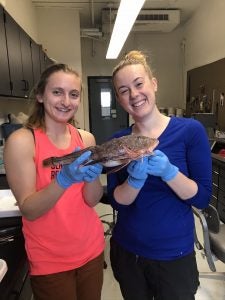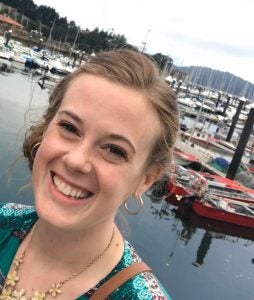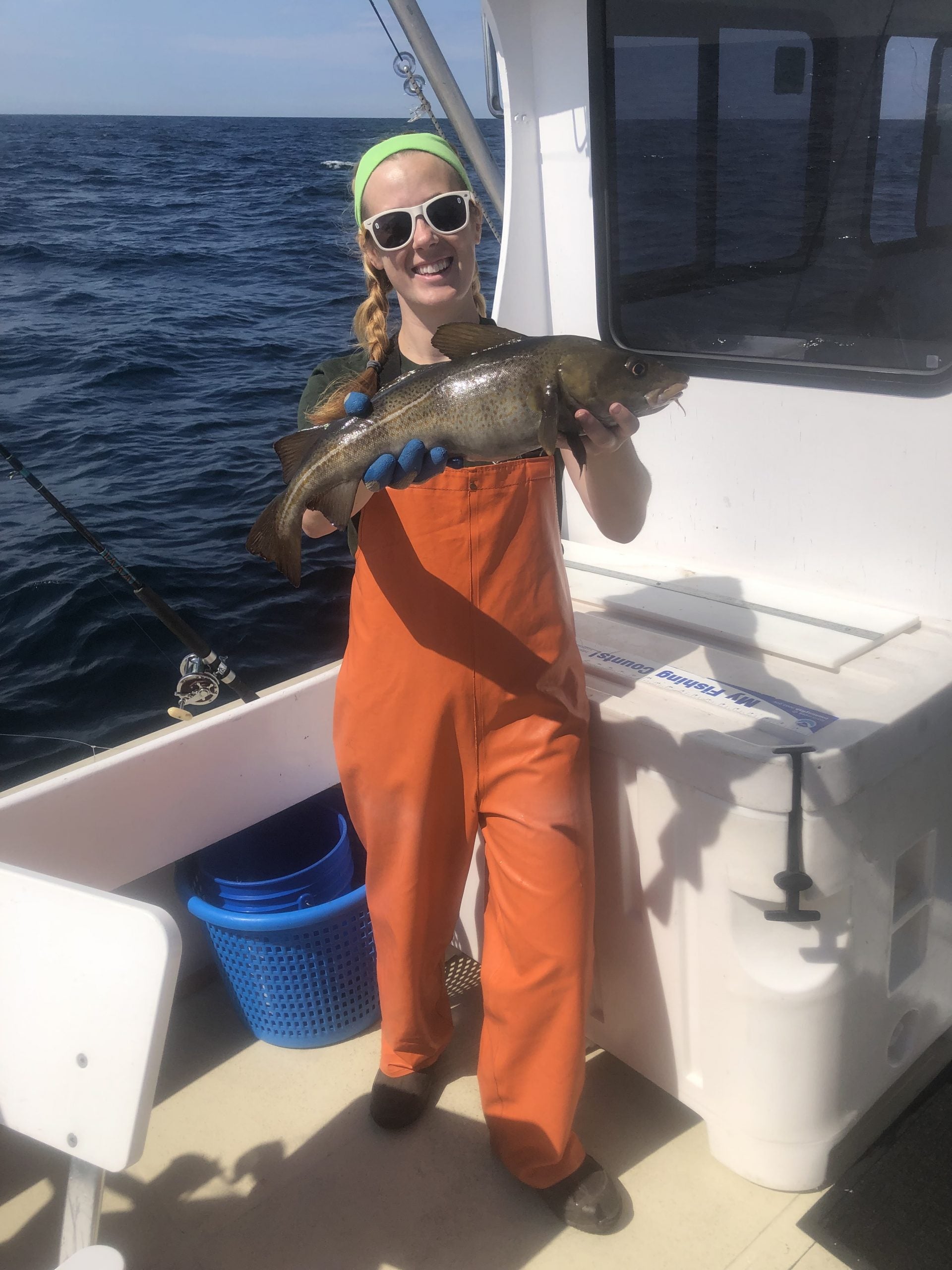May 14, 2021
Welcome to the thirteenth in our continuing series: GSO Profiles! Each post will feature a brief interview with a member of the GSO community. For the next few weeks we will feature GSO students who graduated over the past year. These profiles are one way we can celebrate the accomplishments of those graduating in this unusual time of COVID-19, and also welcome them to the ranks of GSO alums.
Maggie Heinichen will receive her Master of Science this month, and her major professor was GSO professor Jeremy Collie. She grew up on a farm and came to realize there are a lot of similarities between farming and fishing. At GSO she discovered that she liked data management, and with her new job at the NOAA Northeast Fisheries Science Center, she hopes to use those skills to help make fisheries more sustainable.
Here’s Maggie in her own words:
GSOP: Tell us about your work/research at GSO: what question(s) are you trying to answer?

MH: URI College of the Environment and Life Sciences recent graduate Annie Innes-Gold and I built a food web model of Narragansett Bay in Ecopath with Ecosim. I used that model as a starting point to add more environmental drivers of the upper trophic levels of the food web. I incorporated temperature-dependent fish bioenergetics into the model because warming waters could affect fisheries productivity.
GSOP: What is your favorite thing about your work?
MH: The amount of computer coding skills I was able to develop with the project. I also like getting to work in the Bay and assist with field sampling.
GSOP: What led you to your studies/career in ocean science?
MH: I’ve been interested in marine science for as long as I can remember, even though I grew up on a farm. Sustainable fishing is as important as sustainable farming.
GSOP: What brought you to GSO?
MH: The location, my professor, and the coursework which is really skills-based.
GSOP: How have the COVID precautions affected you? What was it like defending your thesis virtually?
MH: I have been working from home for a while, but since my work is computer-based that has been fine for me. I loved defending virtually because a lot of my remote friends and family were able to tune in.
GSOP: Who have been your role models or mentors?
MH: So many people have helped me get through my degree. To choose one, GSO alum Conor McManus, who is now Deputy Chief RI DEM Division of Marine Fisheries, really helped me with my research, and he is great to work with.
GSOP: What do you do for fun?
MH: Hanging out with friends and family while boating, fishing, or generally exploring.
GSOP: What is your favorite spot or view at GSO?
MH: Any spot with a view of the water, which are pretty common. 🙂
GSOP: What is your advice for someone considering ocean science for their academic/professional career?

MH: Embrace learning as many quantitative and technical skills as you can.
GSOP: If you have had some time since your defense, what have you been doing since you finished your degree?
MH: I only recently defended and am now enjoying some down time before I begin my next job at the NOAA Northeast Fisheries Science Center.

